How the coronavirus brought the events industry to a standstill
Weddings, parties ... everything. The pandemic has left a vast eco-system of suppliers on welfare and facing an uncertain future.
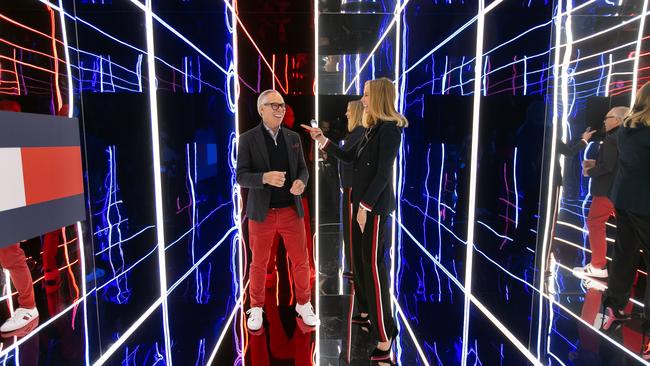
During her 18 years running events at top-tier firms such as Latham & Watkins in London and BT Financial Group in Australia Anine Leakey pulled off some staggering logistical stunts. A candlelit sit-down dinner under the stars near Uluru for 240 top financial planners threatened to come undone when she discovered the camel farm where the event was organised didn’t have enough furniture. Not only that but the camels she’d promised would transport guests to dinner were slightly lacking in numbers.
“Guests had the option to catch a camel to dinner, but we needed 30 more,” Leakey recalls with a laugh. Before long she had organised chairs, crockery, cutlery and tablecloths to be trucked in from Adelaide, while the camel farmer managed to procure another 30 camelids. “The drag queens from the film Priscilla rode in on dune buggies and performed, everyone had a great night.”
Her biggest event was the annual Runway for Success, the flagship event for BT involving a sit-down black-tie dinner for 550 ultra-high-net-worth clients in Sydney, in conjunction with Vogue Australia, The Iconic and the Australian Fashion Council.
“There were many layers to that event, it took a year to organise as we had an emerging designer award worth $100,000 and a partnership with charity Dressed for Success,” Leakey says.
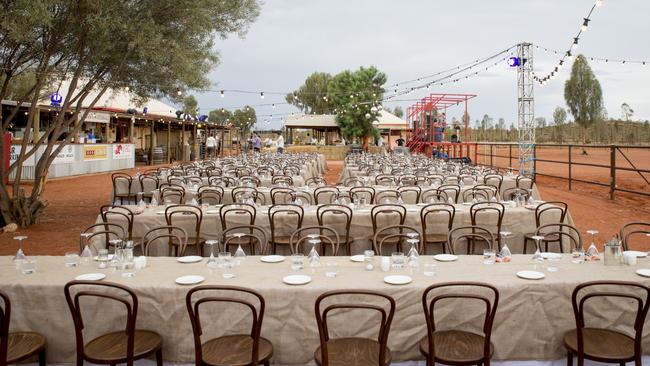
But never has she faced a challenge such as the one presented by COVID-19. Events nationwide disappeared overnight. Leakey was stood down from her job managing events and sponsorship with an investment and financial planning group in March and was left licking her wounds as she wondered how to pull off the elusive pivot given large gatherings were now blacklisted.
No single industry group oversees the unwieldy corporate and brand events sector — an ecosystem where caterers, photographers, florists, set builders, lighting and audio engineers, venues, furniture, hire and more work symbiotically — but industry market researcher IBISWorld estimates that Australia’s events promotion and management services generated $8.8bn during the last financial year in addition to the $4bn wedding industry.
Under a cloud of constantly shifting COVID restrictions, the industry is reimagining itself. Some are taking on small-scale socially distanced bashes and virtual events. But some of the industry’s heaviest hitters have stepped away altogether.
Top-tier freelance creative director Tony Assness spent years designing the Sydney Children’s Hospitals Foundation Gold Dinner, the premier philanthropic event on the city’s social calendar. His feats included erecting a marquee that encased the entire fountain in Hyde Park.
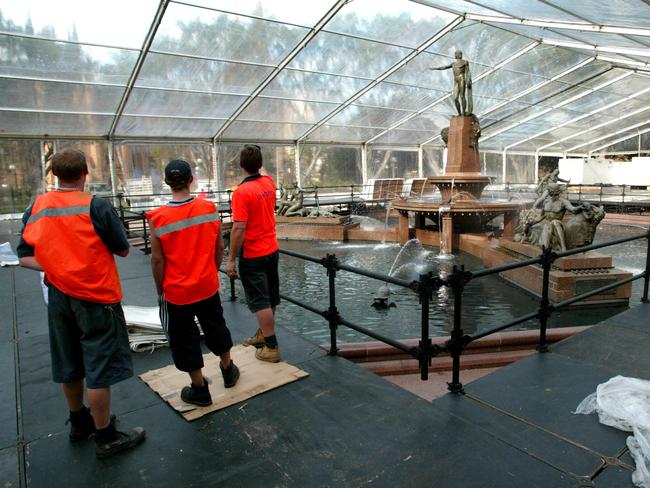
Assness compares the sudden death of events during the pandemic to the global financial crisis bringing a sudden halt to the Gatsby-style parties of the previous decade.
“Before the GFC there was more work than you could possibly take on, it was ridiculous,” he says. “And then it hit and everything just stopped.”
Right now he is making candles full time, something he initially thought would complement his business. “I actually thought when the candles started happening five years ago, maybe this is something I can do during my retirement,” he says, laughing. “Candles are very much a part of creating atmosphere and magic.”
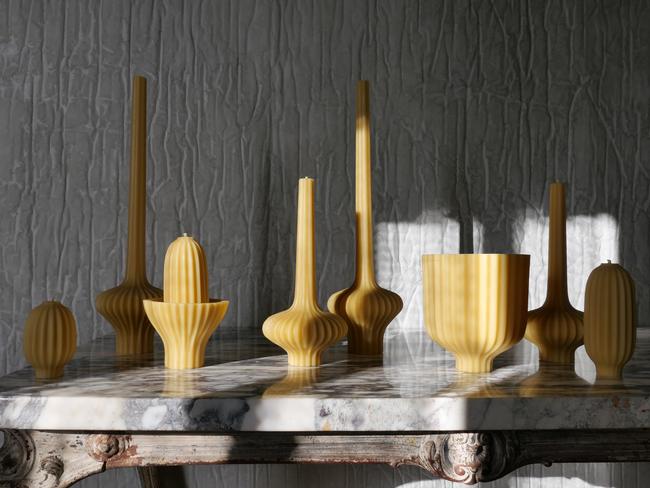
While bulk orders for 200 candles to scatter across wedding tables slowed, Assness noticed his online stockists were receiving more orders for five to 10 candles as locked-down Australians craved the golden light of hygge, or cosiness. This kept a steady revenue stream during COVID.
“They (orders) just kept coming through so I really have not stopped,” he says. “I pivoted from a day job and a side hustle to making the side hustle my day job while the day job died.
“A lot of people view events as frivolous, extravagant and a waste of money, but I have a very opposite view of that. I think societies that do events have confidence. They are an incredible source of employment if you do a dinner: the farmer who grew the steak, the dish-washer who washes the plates, the guy that hires the forks, knives and tables, the lighting designers, the florists. And I’m just scratching the surface.”
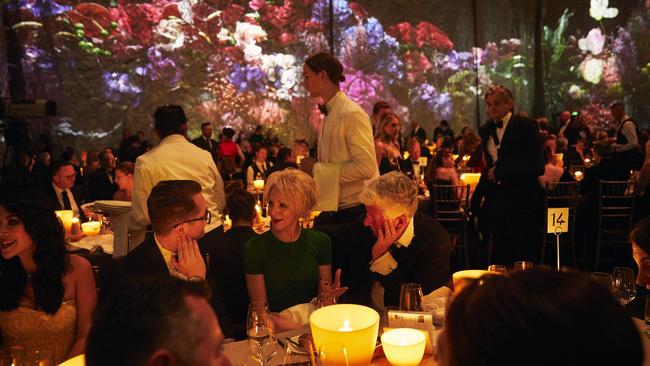
A report last year from IBISWorld valued Australia’s events catering services at $3.3bn, with 56 per cent private events and weddings and 44 per cent corporate events. States with the heaviest COVID-19 restrictions — NSW, Victoria and Queensland — accounted for 80 per cent of the sector.
“We see this sector down between 80-95 per cent,” Restaurant and Catering Association chief executive Wes Lambert says. “It’s very important that the industry does not crash (entirely), especially during its highest season in spring and summer because it simply won’t recover in the winter.
“With Victoria under lockdown there is no evidence of things opening up in the foreseeable future. The function and events industry in Victoria will be decimated and have gone nearly a year without events. NSW is under quite restricted caps, but they seem to be easing.
“We’re certainly lobbying the government to accept COVID-safe plans and well-thought-out solutions, knowing that a suppression strategy with social distancing can get some of those events back on track faster.”
When it comes to designing experiences that guarantee VIPs have the time of their lives, Katrina Regan is one of the best in the business. In pursuit of unsurpassed luxury for the Emirates marquee in the Birdcage for the Melbourne Cup carnival she travelled to India to source fabrics in vibrant hues to hang from the ceiling. She recalls redrawing the floor plans for the Asia-Pacific Economic Co-operation forum’s glittering leadership dinner in Sydney in 2007 in case US secretary of state Condoleezza Rice wanted to play piano.
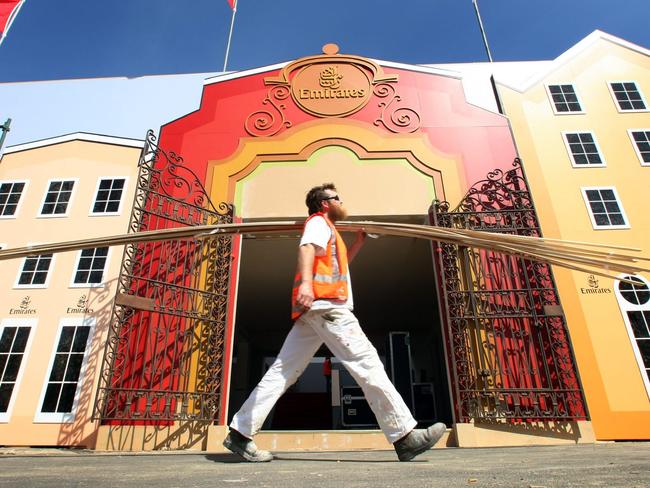
Regan also produced one of the last big social events before lockdown: the Cartier jewellery exhibition Into the Wild at Melbourne’s Federation Square in March for creative events agency Rizer.
However, for the past six months she has been going for long walks and contemplating her future. Regan worked with the biggest event agencies, which have been hardest hit.
“I don’t have any work coming through; the agencies I’ve worked for have had to streamline and put people off,” she says. “(They) are working on skeletal teams so they don’t have the luxury to bring in the extra resource.”
As a freelancer and sole trader, Regan was eligible for government wage subsidy support from JobKeeper. Although she is confident her project management skills in high-pressure, big-budget environments are transferable, she says, “I’m not quite sure what the future holds.”
Supply chain strife
Event Planet managing director Amy Merriman says the “rug was pulled out” from underneath the industry virtually overnight after her company’s “busiest financial year in nearly 20 years of business” last year. “Our revenue downturn has been significant,” Merriman says. “Government support has been particularly helpful … human capital is something we try to keep and preserve. JobKeeper is good for that.”
Boasting a high-profile list of clients, including Moet et Chandon, Marks & Spencer and Google, the company worked with about 500 suppliers in any given year, many of whom “have innovated and developed creative ways to maintain their revenues,” Merriman says. “One of our gold licence caterers launched an online home delivery business for pre-cooked meals using their staff and kitchen,” she says.
Event management and production company The Spark essentially ceased operations in mid-March. Director Stephen Davey says “there have been no events to speak of” since, but the JobKeeper package has allowed a network of suppliers to stay afloat. “I bring people together from designers to choreographers, music directors and orchestras,” Davey says. “For most of those people their work is based on entertaining people and that has stopped.”
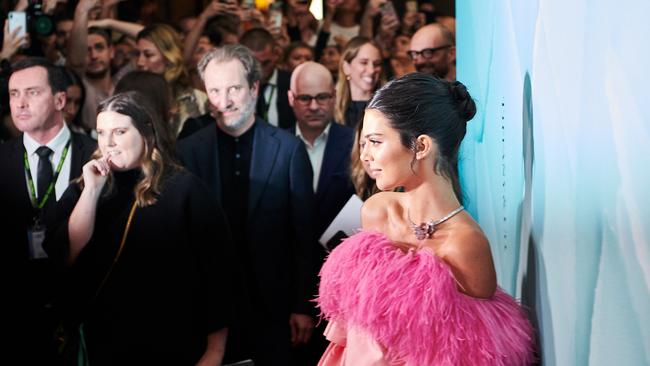
Katerina Grant has spearheaded events such as designer Tommy Hilfiger’s 2019 Australian tour and the Art Gallery of NSW’s inaugural Archiball. Her agency, Kat & Co, produced the event that brought Kendall Jenner to Australia for Tiffany & Co’s Sydney flagship store opening last year, one of the undisputed highlights of the social calendar. Her company is focused on avoiding redundancies but, concerned about her company’s suppliers, she is hosting webinars to promote their work and to encourage business to flow direct from clients.
Rizer founding director Barry Wafer slashed his workforce from 64 to 12 after large gatherings were restricted to stop the spread of coronavirus. He says his workload dropped to 8 per cent and the pandemic has been catastrophic for the entire supply chain in the events industry.
“For catering, florals, video, sound, production — it was like a tap turned off completely for them,” he says. “Freelancers and contractors who support businesses like ours, they are the backbone of our industry.”
Wafer’s greatest event hits include the 2016 reopening ceremony of the Spanish Steps in Rome with 100,000 people packed together and throwing lavish collection launches for brands such as Cartier and Louis Vuitton in Australia. But Wafer, who was able to keep a core group of staff employed with the assistance of JobKeeper, is optimistic. He “can’t wait to put on one hell of a party” when the pandemic subsides. “I think there is going to be a renaissance,” he says.
Virtual reality pivots
Sydney-based firm Team Event took on producing the Gold Dinner for the first time last year, meeting the challenge of creating an intimate atmosphere for a 500-person function. Tiered levels of dining and a 36m screen mirrored in a reflection pool dazzled guests at the Royal Hall of Industries.
During the past few months, the organisation has hosted a virtual experiences series for Audi, including a flower-arranging masterclass with A-list florist Saskia Havekes. The event was filmed in her shop in Sydney’s Potts Point, with selections of flowers in a DIY kit delivered to attendees before the session. “It had the quality of a broadcast show as opposed to someone just sitting in front of a webcam and that death by Zoom experience,” Team Event boss Mikey Filler says.
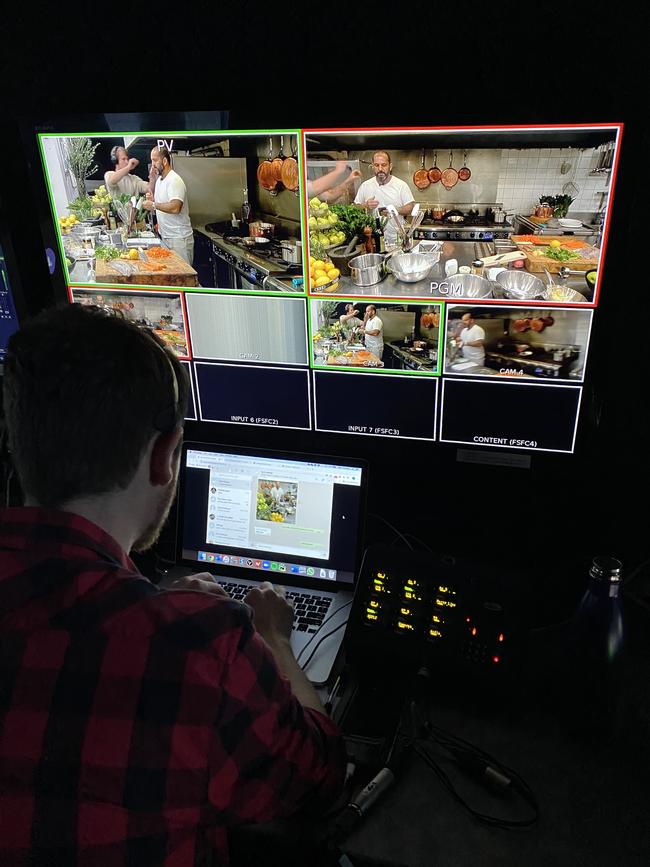
“The industry as a whole pivoted into the virtual events space very quickly, but we didn’t want to be doing the same thing as everyone else and just managing meetings for people. A client can do that for free.”
Last month, Team Event hosted a hybrid event for another carmaker with a virtual component and a socially distanced visit to the showroom. Staff whisked groups of 20 people into the venue in staggered timeslots across a week, with thorough cleaning taking place in between. “Everyone had to fill out a COVID declaration, scan in, we had temperature checks, everyone wore masks and gloves, and we had oodles and oodles of space to comply with the social distancing guidelines,” Filler says.
“It felt like a real privilege being on site and to be able to call our suppliers and say hey, we’ve got this work for you. It was the morale boost that everyone needed. We’re now really encouraging clients to consider events like this if it’s suitable. Otherwise we’ll just see complete decimation of our industry and all the affiliated industries.”
While online platforms provide an alternative space to host events, wedding planners say their clients still want to share their special days with their family and friends in person. Event stylist Philip Carr says many of his new clients are also accepting the new realities of smaller-scale weddings under COVID restrictions.
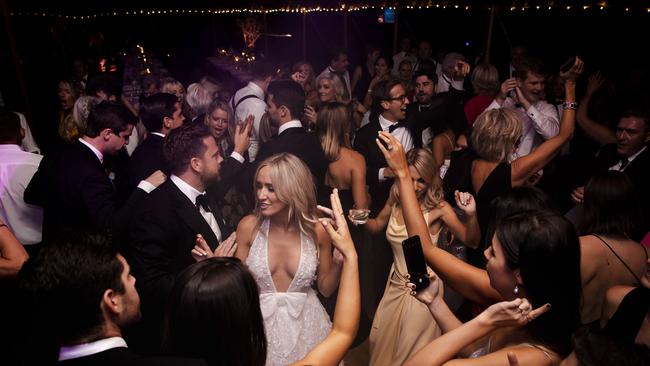
“They can say even if there is no dancing, we’ll have a new type of wedding,” Carr says. “It’s better when you are not comparing to what it was supposed to be, just like the way eating out has changed with social distancing.”
Carr, who has planned parties for Bill Clinton, Princess Mary and Nelson Mandela, says embracing the challenges that COVID imposes is vital. “One wedding we are planning now, everyone will get their own individual wedding cake because you can’t have one cake with everyone blowing on it and cutting it. But it’s quite cool getting your own wedding cake.
“We’re also doing more four and five-course meals because if there is no dancing, the food is a bigger part of the story.”
Confidence is key
For Leakey, inspiration struck while she was visiting her parents on the NSW south coast, a popular tourist and rich farming area that had been badly hurt by the summer bushfires and now COVID.
Leakey decided to tailor her events business, A9 Event Design, to create bespoke, exclusive experiences for small groups with a focus on produce from bushfire and now-COVID affected areas whenever possible.
With master jeweller Matthew Ely she held her launch event in July at Ely’s store in Woollahra, in Sydney’s east, where a group of 10 tasted gin from North of Eden gin distillery on the south coast and had a mini workshop with Ely. Barossa winemaker Michael Hall then held a wine-tasting over Zoom before dinner was served.
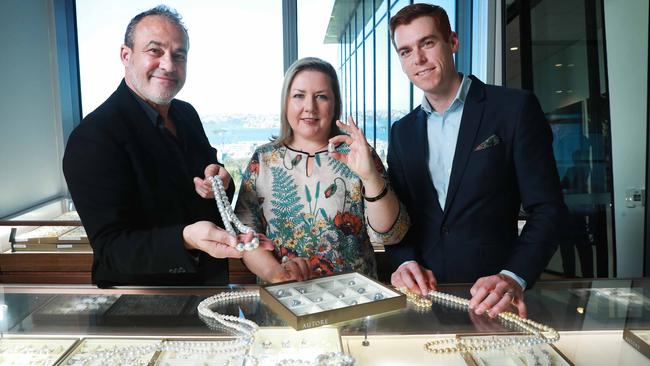
Last week, Leakey hosted an event at Autore Pearls, where guests were given rare access to the pearl grading and sorting of around 100,000 pearls recently harvested from Autore’s Northern Territory farm. They ate ceviche-style pearl meat flown in from the farm off the north west coast of WA with wines from Cupitt’s Estate on the NSW south coast.
While 20 people can gather indoors in NSW at present, Leakey says it’s about ensuring people feel comfortable. “You have to judge how people are feeling. The thought of exposing anyone by creating an event they didn’t have to go to fills me with anxiety so I’m erring on the side of caution.
“Everyone has been so positive, they love the exclusivity … But more than anything they feel good about supporting Australian businesses that need help.”
Additional reporting: Angelica Snowden
